Jun 18, 2023 | Native Hope
A community is only as strong as its mothers and fathers.
The heritage of Native Americans is rich in community and family bonds. In the Lakota culture, the word tiyospaye encompasses the conviction that family is made up of immediate blood relatives and extends to all those within their tribal clan. The abundance of a family is the measure of your wealth and creates the very foundation of one's life.
This weekend, we're sharing some thoughts about Native men who are strong fathers and father figures for their communities and the world.
Let's Show Our Gratitude to All Fathers
This weekend, let's celebrate and honor the memory of men who have been good fathers and father figures in our life.
Here at Native Hope, we are grateful for tiyospaye, for fathers, and for our whole community of friends. Mitákuye Oyás'iŋ el lechangleska wichoni – "We are all related in this circle of life."
Understanding the Native American sense of family
Different cultures develop different conceptions of living in a family and relationships with each other. Every culture understands and highlights the importance of fathers, mothers, and healthy families, but Native American culture is uniquely relational. For Native Americans, family, and tribal relationships are sacred and interdependent. The pain or joy of your family is your pain or joy.
In Lakota culture, tiyospaye (extended family) embraces the beauty of living in harmony, taking care of one another, and trusting each other. Your thióšpaye will support you throughout life’s journeys, whether the road is rocky or the path smooth. For the Lakota, you are not only a member of the family through birth, marriage, or adoption, but also family extends far beyond to include the whole Lakota nation. Throughout history and into the present day, the Lakota welcome and support each other, wherever they find each other, as if they were in their own immediate family — this includes those considered family.
This Father's Day, we celebrate the Native fathers and father figures who are supporting, raising, and loving the next generation of young Natives, showing them what it means to live with honor and strength.
The role of a father and grandfather — Ate and Lala
Father of Native Hope Director, Bernie Long of the Lower Brule Sioux Tribe (Kul Wicasa Oyate), raised three daughters and is grandfather (lala) to 4. In addition to his role as an ate and lala, Bernie served several Native communities in healthcare. Currently, he is enjoying quality time on his family farm with his family.
When asked about the importance of becoming a father, Bernie explains, "I used to do things, thinking just for myself. When I joined life with my wife, we became a pair doing things for each other. My whole perspective on life changed when I became a father. My purpose changed to building a life to support my wife and my children. I believe it is important to be attentive to what your children are doing and what is important to them, so you can support them in their activities beyond sports — this way, they become well-rounded athletically, academically, and socially...it [fatherhood] was a good change for me. It is important to experience the rewards of our children."
Now, Bernie enjoys his role as a lala. "My children now are grown and have families of their own. Being a grandfather is incredibly special. Dianne [his wife] and I are currently teaching our grandchildren and hoping for more," Bernie remarks. "Growing up on a farm, I worked side by side with my father and grandfather, raising cattle, crops, gardening, and fixing things! Respecting all elders was such a commonplace and natural thing. Intergenerational upbringing has many advantages for our youth, and I am thankful to play a role in each of their lives."
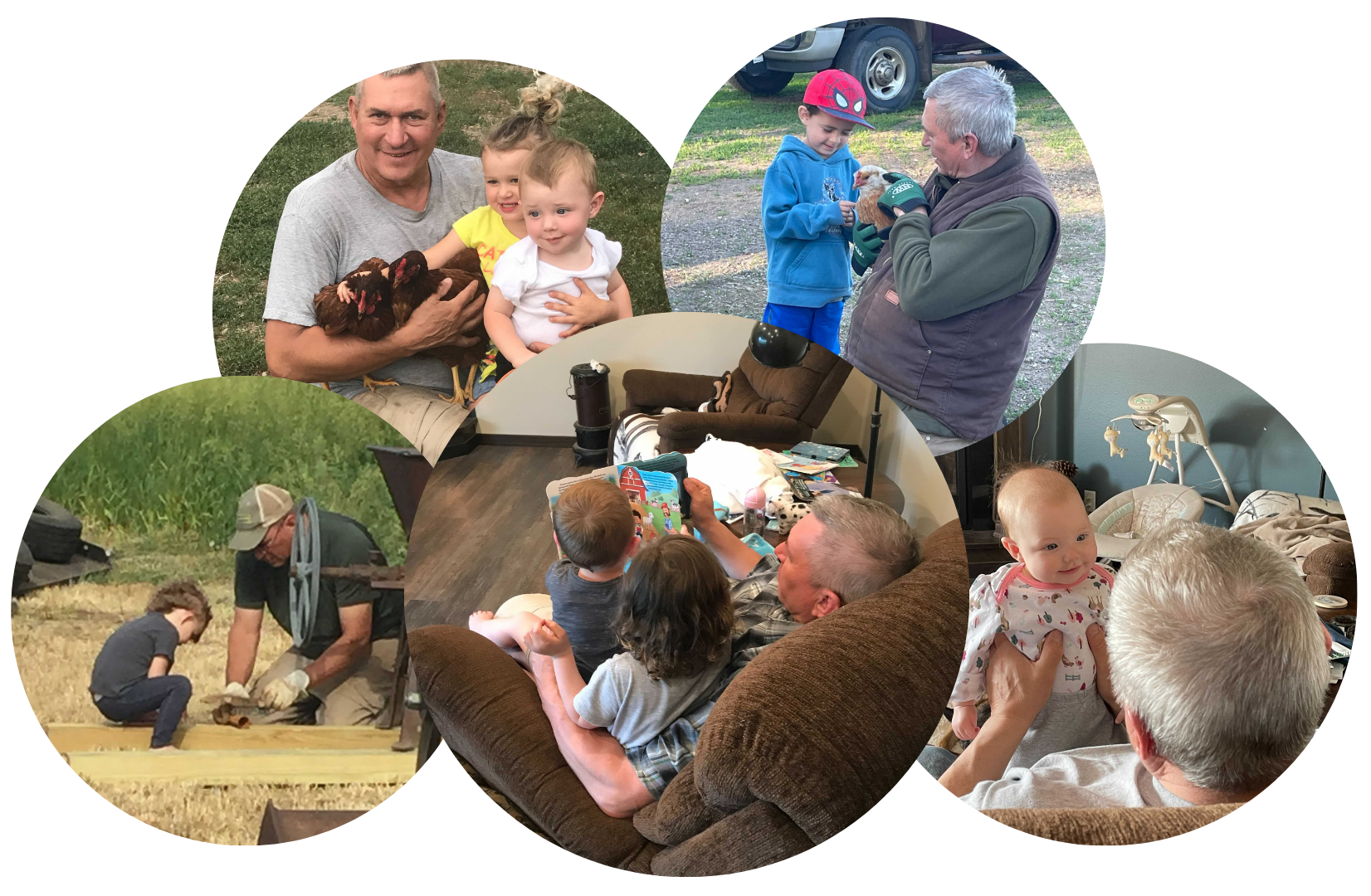
Boyd Gorneau, former tribal chairman of the Kul Wicasa Oyate, speaks about the importance of fatherhood and being a Native American ate:
"I'd say being a Native father is special in the way you instill your heritage and history, but when it comes down to it—of all the titles a person may have nothing, [none] mean more to me than being called 'Dad.' With that title [Dad] there is a lot of responsibility. One is to be a positive role model because children learn more by observation; [this includes] being a good provider and protector."
Boyd continues, "Watching your children grow is such an honor, and I've been so blessed having a son who is a Marine, a son who is a senior in college, and a daughter who is a program director [for the LBST]. I am very proud and look forward to seeing my grandchildren grow up as well."
These words hold true for atés of all walks of life. Lyle Miller, artist, and educator of the Yankton Sioux Tribe (Ihanktónwaŋ Oyáte) shares his perspective on fatherhood and the importance of love.
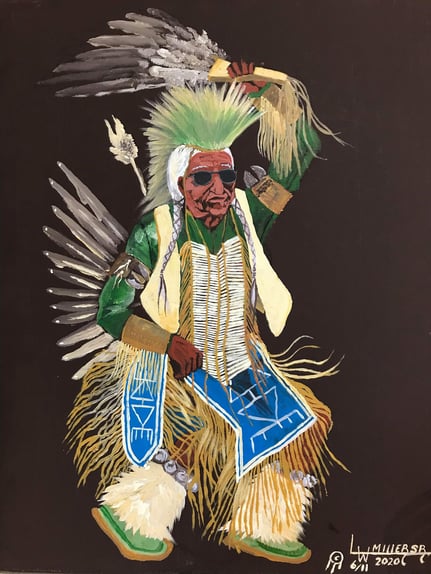 "I think it [the best aspect of fatherhood] is a great deal about the human bond and the spiritual bond that helps the father/child relationship to grow to new heights everyday. There is also the fact that the father is looked to as the provider and the protector....which is second only to a Mother’s love. This all strengthens and nourishes the strength of family."
"I think it [the best aspect of fatherhood] is a great deal about the human bond and the spiritual bond that helps the father/child relationship to grow to new heights everyday. There is also the fact that the father is looked to as the provider and the protector....which is second only to a Mother’s love. This all strengthens and nourishes the strength of family."An important aspect of Native fatherhood to remember
A good friend (kola), Wilfred Keeble, an elder from the Crow Creek Sioux Tribe (Hunkpapa Oyate), reminds us that most kids from his generation grew up fatherless. "Most of us grow up in the age of the welfare system where moms were put in control by the system. We finally realize what was happening."
What was happening? The father lost his role—the role of teaching his children to be protectors. Protectors of the family and the tribe. He lost his role as a provider. No more were fathers able to hunt and fish as they once did. Everything changed.
Wilfred shares, "My grandfather's teachings are a true guide to living my life as a man. We spent many hours together with cherished memories. But, as Dakota, we have to be in balance." He goes on to say, "As a result of intergenerational trauma that plagues our people following European contact, we have direct experiences [from ancestors]. Everything associated with colonialism, I have personally seen through the suffering of the indigenous people."
Because of his lalá's teachings, Wilfred knows that he is to be of help to others regardless of this trauma. He believes he should make someone smile at least once a day. Wilfred remembers where he came from and that his prayers will take care of him—"my grandfather's teachings are alive today."
The 7th Generation on fatherhood
Fathers like Jeshua Estes and Chris Johnson, both of the Kúl Wičháša Oyáte, are part of a movement to reclaim Native fatherhood. Jeshua emphasizes, "I guess it [fatherhood] has given me hope, a sense of purpose - I wanted to be better than mine [father]." He feels his six children give him a lot of good medicine — "they help me stay on this path — they have given me everything I am." Watching his children do their best at whatever they do is what brings him joy, whether it's basketball, volleyball, dancing, drumming, or singing.
Jeshua educated himself on how to be a parent by taking education classes. Jeshua became involved in education in 2008 and received his degree in education in 2010. Since 2013, he has dedicated himself to teaching Lakota studies which include the language and cultural teachings. Beyond educating himself about parenting via the classroom, Jeshua thinks it is crucial to find other fathers who are doing healthy things and hang out with them.
"Go there," he says. "I started looking around at other families: powwow families. It [powwow] takes a lot of time and effort." He learned how to make drums, regalia, bustles — anything necessary to be a part of the Powwow Trail. "Powwow families are really strong. They are investing in their kids. They are the healthiest families," he suggests. "I what I do this. I wanted to pass that celebration to my kids."
Jeshua concludes, "The best medicine is love."
"The biggest thing about being a father is the joy the kids bring to my life," shares Chris Johnson. He and his wife have four children. Chris loves to take them fishing and to teach them how to live off of the land. "They open my eyes to see the way of life as a Native father. As a Native father, the best part of life is teaching our kids that way of life."
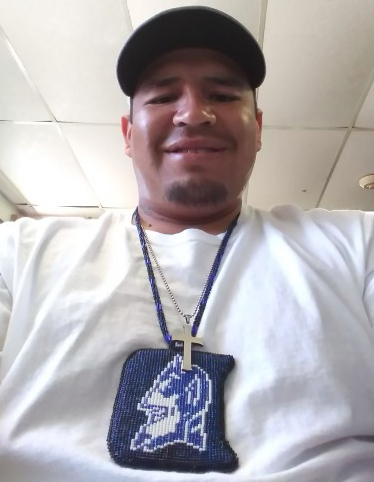
Let's Show Our Gratitude to All Fathers
This weekend, let's celebrate and honor the memory of men who have been good fathers and father figures in our life.
Here at Native Hope, we are grateful for tiyospaye, for fathers, and for our whole community of friends. Mitákuye Oyás'iŋ el lechangleska wichoni – "We are all related in this circle of life."

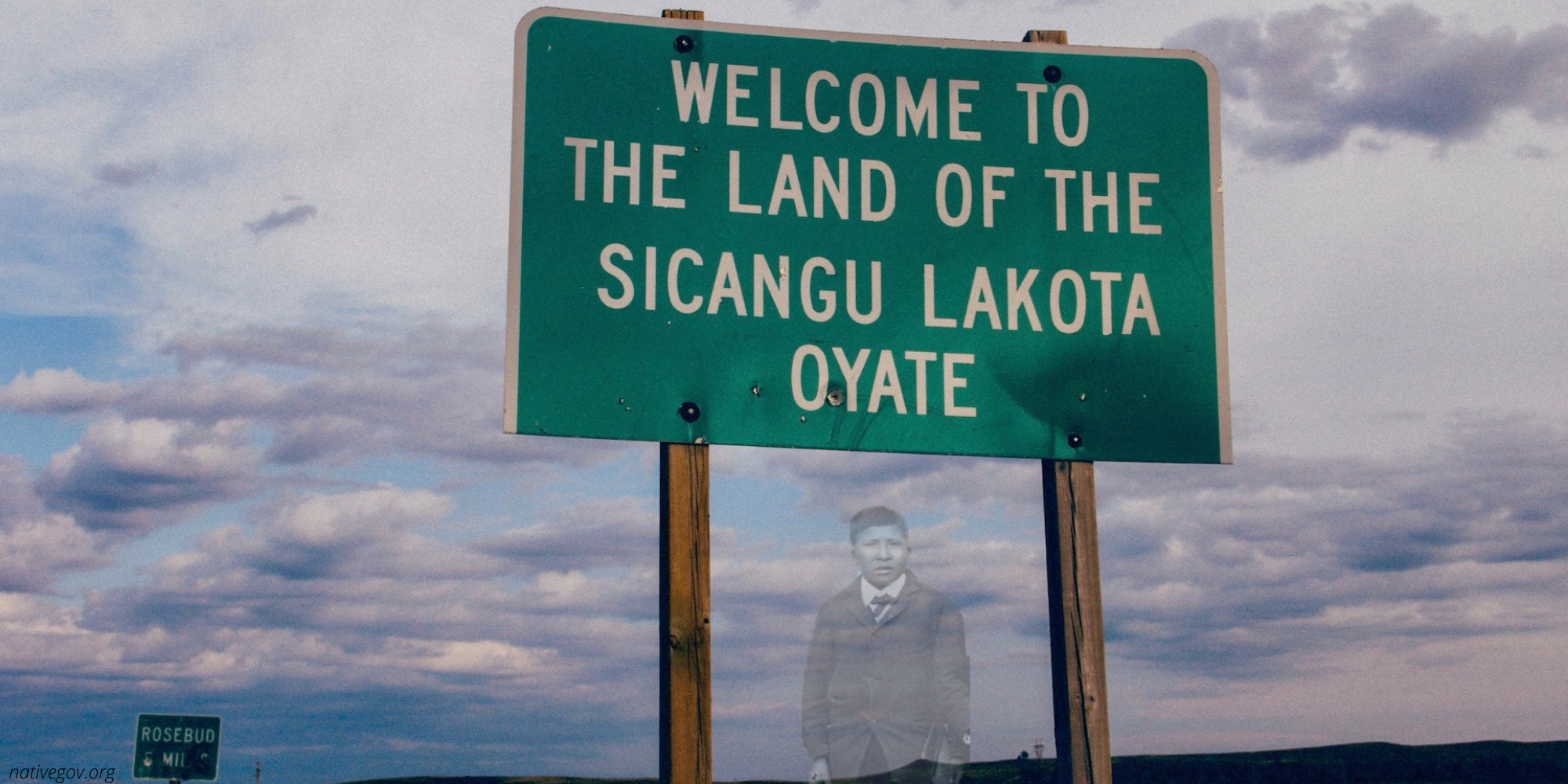
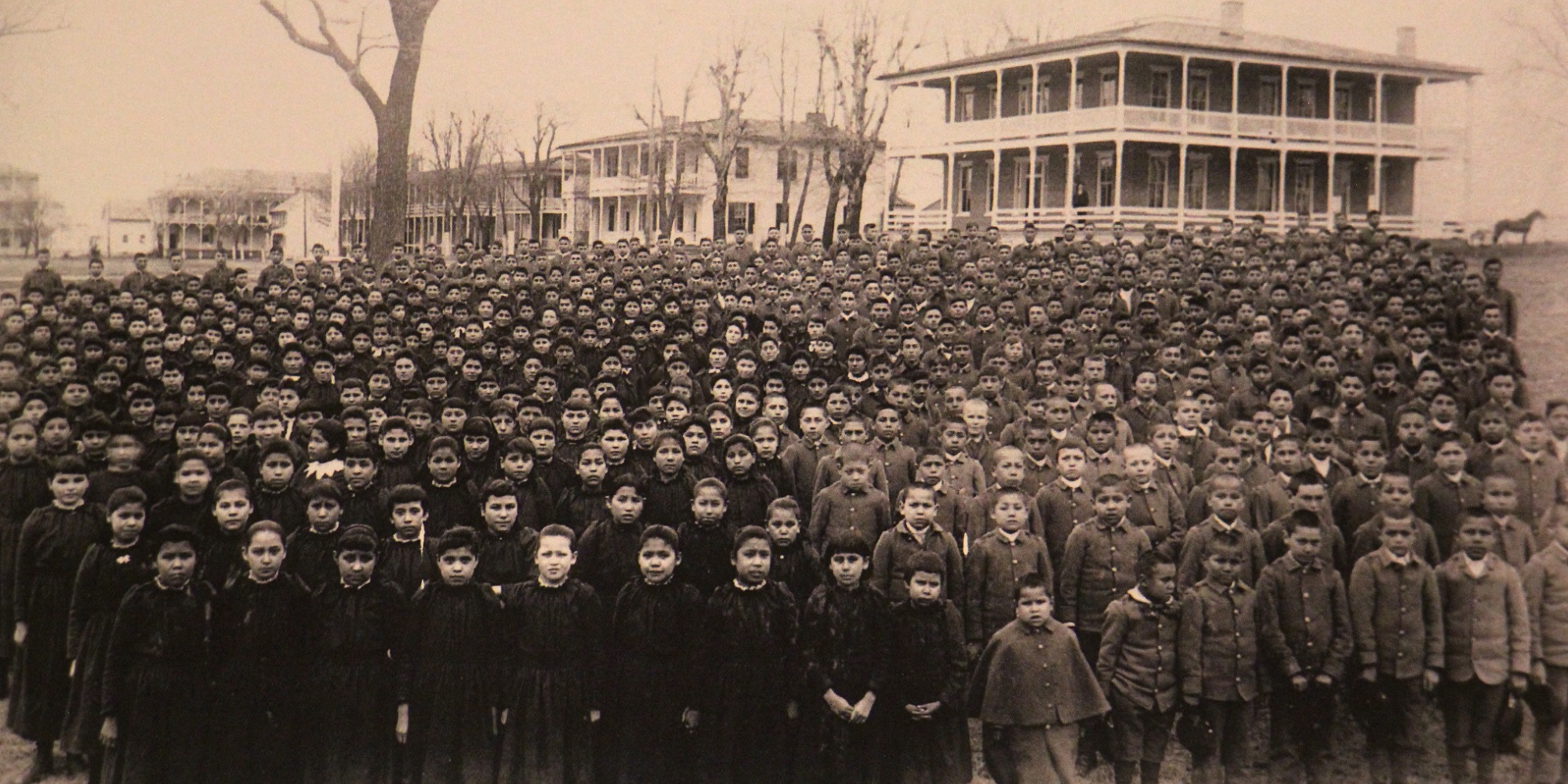
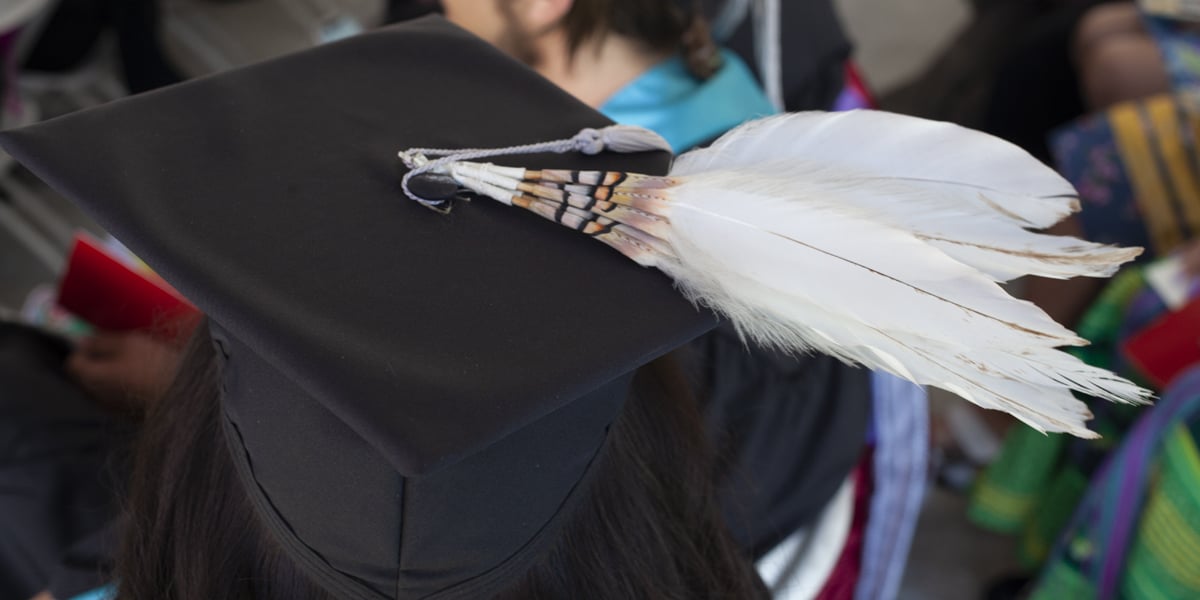
COMMENTS